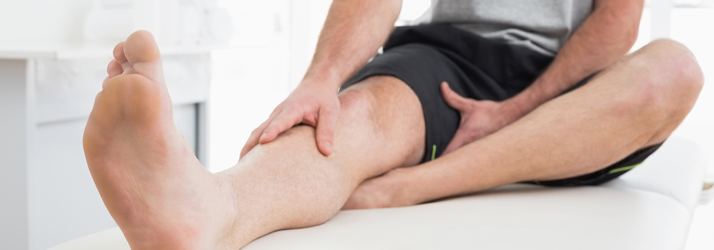Knee Pain Management in Nashua NH

If you want to treat knee pain naturally and without knee surgery after an auto accident, we can help you. Here at Main Street Wellness, we treat knee joint pain using chiropractic adjustments and corrective exercise. As your Nashua NH chiropractor, we also provide wellness care, massage therapy, yoga practice, DRX 9000 lumbar decompression, weight loss, and nutritional counseling. Discover more about how you can experience all-natural pain relief and healing of your knee injury using comprehensive chiropractic care.
Common Causes of Knee Pain In Nashua NH
A knee injury is the primary cause for knee pain. This type of injury typically is caused by an auto injury, sports injury, work injury, and other personal injuries. You can also suffer from knee pain caused by nerve damage, joint problems, ligament issues, and musculoskeletal complaints. If you have fibromyalgia or arthritis you may also be struggling with knee pain associated with your condition. Fortunately, all of these knee conditions can be effectively treated by your Nashua chiropractors at Main Street Wellness.
Knee Pain Treatment
When you go to see a chiropractor in Nashua for knee pain treatment, you are going to receive drug-free, surgery-free therapies. Starting with a chiropractic adjustment, your chiropractor will resolve any musculoskeletal misalignments. When your spine is out of alignment, this can put pressure on the surrounding nerve tissue and muscles. This pressure on your nerves can lead to inflammation and pain throughout the rest of your body, and including within your knee. By keeping your body in alignment this prevents any of these outer lying issues from causing you more knee pain. Additionally, when you begin using chiropractic adjustments this helps to oxygenate the blood in your nervous system, which boosts your body’s natural healing abilities. You will be able to heal your knee injury for long-term pain management.
Chiropractic Treatment for Knee Pain
If you want to treat the problem that is causing your knee pain, so it will lead to long-term pain relief, we can help. Chiropractic treatments resolve the problem causing your knee pain. We do this without drugs, anesthesia, or surgery. Treatments come with minimal, if any, downtime. Additionally, chiropractic care for knee pain is more cost effective a solution. Your chiropractor will also provide you with corrective exercises that you can do in between adjustments. This will help you strengthen your knee so that the ligaments are less likely to be strained or torn causing you knee pain.
See Your Nashua Chiropractor for Knee Pain
We want to help you treat your knee pain following an auto accident. Our chiropractors Dr. Sullivan and Dr. Terry will help you overcome your injury with expedient healing so you can get back to your normal mobility. We treat patients in Brookline, Hollis, and Pepperell, NH. Contact our office today at (603) 882-5742 to schedule your appointment for knee pain treatment. We look forward to treating your knee problems.
OFFICE HOURS
Monday
8:00am - 6:00pm
Tuesday
8:00am - 6:00pm
Wednesday
8:00am - 6:00pm
Thursday
8:00am - 6:00pm
Friday
Closed
Saturday & Sunday
Closed
Main Street Wellness
382 Main St
Nashua, NH 03060
P: (603) 882-5742
F: (603) 880-1445



